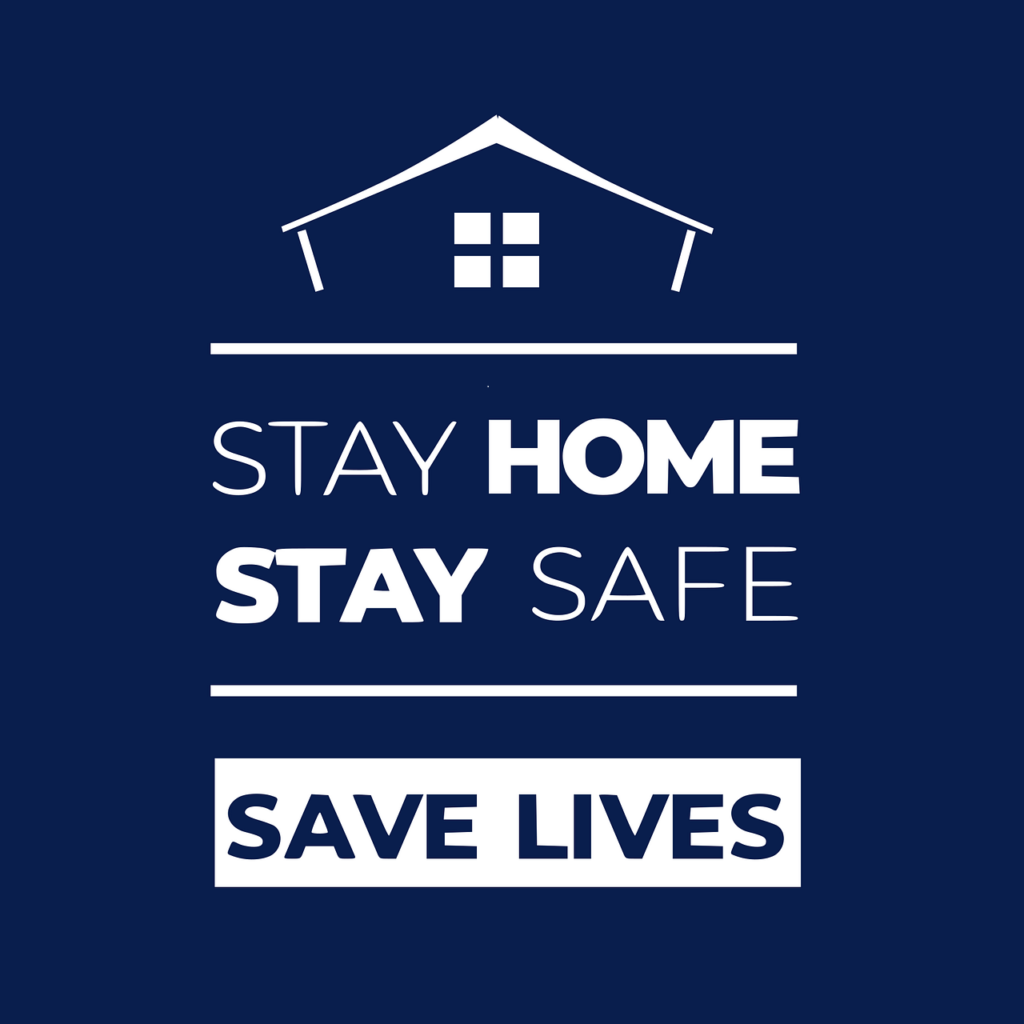If you only had a few hours to evacuate your home because of an emergency (health- or weather-related), could you determine and locate your essential information, documents and resources?
Hurricanes, wildfires, tornadoes and a global pandemic….to say that 2020 has been a challenging year is an understatement. National Preparedness Month is recognized each September and the theme for 2020 is apropos – “Disasters Don’t Wait. Make Your Plan Today.”
In an emergency, the last thing you should be doing is scurrying to find extra batteries, locating essential documents, and worrying if your insurance is updated. It is critical to have easy access to important documents, records, and resources in the event of an evacuation or emergency.
Thinking through the details and your priorities when you are not in the midst of a crisis is vitally important.
DOCUMENT – the information and resources you already have (for example, your health insurance information, your ‘in case of emergency’ contacts).
Tip: Store your important documents in the Cloud which affords you access no matter where you are. Alternatively, if you plan to keep your documents in a paper-format, store them in one binder/folder and consider laminating.
CONSIDER – the information and resources you may need in an emergency (for example, flood insurance, extra prescription medicine).
Tip: Prepare an emergency kit with the essentials.
ORGANIZE – the information for easy access. Having everything in just a few places, rather than scattered through the house, is a good idea.
Tip: Create a roadmap (in a physical or digital binder) that details where the information and documents are located. My Life Packet is a comprehensive life and legacy affairs organizing workbook that guides you through the process.
SHARE – your plan with your loved ones.
Tip: Establish a family communication plan.
Taking inventory of what you would need in an emergency can save you and your family time, money, and stress. Although it may feel overwhelming, organizing and taking inventory of key information will not only help you ‘weather’ a storm, it will also create peace of mind.
As parents face the annual back to school routine this year, perhaps we need to revise the standard preparation for the first day of school. Rather than discuss how to organize your physical “stuff” for school, we are going to discuss the ABC’s for organizing a plan to address stress during this challenging time.
ASSESS
Many parents experienced the challenge of online learning (aka – distance learning or at-home learning) with their children this spring. As school openings fast approach, it is a good time to stop and assess how that online learning experience went for your family. What worked well? What did not work well? And most importantly, why didn’t it work? The best way to find a solution to a problem is to understand the root cause of the problem. If your child was too distracted or had difficulty paying attention to online sessions, think about why he or she was distracted and do your best to address that distraction. Was their sibling doing their lesson in the same room? Were toys in the room that caught their attention? Was background noise a disturbance? Perhaps switching the room for their online learning or putting away some toys may lessen the distraction. Wearing ear buds might reduce the background noise. There is no one size fits all answer to this issue or any other issue you may have encountered. The key is to figure out why the situation did not work so you can identify a solution that will work for your family. And, for those who have not been through online learning as of yet, reach out to family and friends who have experienced it and get their input on what worked for them to see if it can work for your family.
BALANCE
Dealing with our children can be challenging in general. So, having to deal with online learning or blended learning, in addition to normal daily stresses, can be overwhelming for some. Many parents are also trying to work from home which compounds that stress. Finding balance amidst the chaos may be beneficial. Take time before school begins to identify ways to balance the hectic environment that may exist during the school day. A quick 5 to 10-minute stress-reducing activity should provide relief. The list below is in no way all inclusive.
Also, our children are not immune to the stress that online learning may create. They may find some of the items above useful when they encounter a feeling of anxiety. Here are a few additional suggestions:
Figure out what works best for you and for each of your family members.
COMMUNICATE
Creating a productive environment for both you and your kids is a goal for many parents. Open communication can contribute to that goal. Does your spouse know you have a 10am conference call and he or she needs to handle any issues that may pop up during that call? Does your son have a test tomorrow and needs quiet time to study? Is your daughter struggling with a lesson and needs additional tutoring? Having open discussions about the needs of each family member can go a long way to reducing stress during the day. The discussions don’t need to be formal. While clearing the dinner table ask a question like “Do you need anything from me to prepare for tomorrow?” or “Are you stressing about anything and, if so, how can I help?” Speaking to someone about their needs can help ease their tension. And don’t forget to let your family know of your needs as well. If they don’t ask you what you need, you can bring it up to them. Let them know that you have that conference call at 10am and ask that you not be disturbed for that hour. Remind them that the dog needs to be walked at lunchtime and ask who can help with that task. Communicating effectively will let each family member know you are all there to support each other.
Using the ABC’s above may not eliminate all the stressors you will face this school year. However, utilizing Assess and Communicate as proactive steps to help prevent stress, and incorporating Balance when stressful situations arise, may help you get back on track and allow you to have a productive day.
Karen Kabara
Your Tasks – Our Time, Inc

While sheltering-in-place we’ve been spending a lot more time baking. And wouldn’t you know: Stressed Spelled Backwards is: Desserts!

I saw that catchy phrase after delivering my 5th batch of muffins in April. To avoid gaining the dreaded Covid-15 (think Freshman-15) I delivered Tupperwares to my neighbor, who appreciates my zero-sugar recipes.
With my last delivery of cranberry-sweetened pumpkin millet muffins, I wrote “sorry for dumping my stress-baked goodies on your doorstep.” She texted back “TY” with a link to “Stress-baking is a real thing!”
My 3 favorite therapeutic benefits to baking:
This “proof of progress” is where I want to focus.
I don’t know about you, but I am:
• losing a sense of what day it is
• not as productive as I was before Covid-19
• feeling less accomplished despite feeling almost as busy
So I reflected on the tools I used before Covid-19:
Here’s why I’m returning to these habits:

I can’t take credit for figuring out…stressed spelled backwards is desserts!
A recent RieOrganize! poll on Facebook came up with the following: Stay at home. Boredom. Facebook. Zoom meetings. Gratitude for front line workers. Frustration about having to wear a mask. Death. Telecommuting. Homeschooling. Social isolation.
Until recently, I knew of only a handful of friends who were dealing with COVID-19. Most were friends who live out of town or who were dealing with their friends/family members who were dealing with the virus. Yesterday, I was told that a friend is in the ICU with novel coronavirus. While we were not close friends, we did keep in touch over the 30+ years that I’ve known him and his husband.
What I realized today, however, was how much I did not know about them. For instance, who is my friend’s next of kin? My immediate answer would be, of course, his husband. But his husband died last week of a non-coronavirus-related illness. I don’t know if he has a health care directive or, if he does, who is listed as the alternate proxy because his husband just died – or where this document is located. I know that his husband took care of most of their financial, legal and daily responsibilities. I don’t know who will be responsible for all of that now and, more importantly, nor does anyone else. Everyone is scrambling to try to figure out what to do!
While this is indeed stressful and sad, I have to ask myself and you…
· How many of us or our friends or family members could find themselves in a similar situation?
· Have we taken care of our own medical, legal and financial paperwork? If we have, does anyone know where it is located or have easy access to it?
· Will you or someone you know find themselves sick or dying alone with no one who knows what you would want to happen medically or, if you should die, with your belongings?
According to our informal Facebook poll, not everything in our world today is discouraging, heartbreaking, disheartening or grim. Looking at some of the memes on Facebook or Instagram can make you smile or laugh out loud.
There is little wrong with cooking or baking too much, using Zoom or Facetime to be connected to friends, relatives and colleagues, binge watching Netflix or taking naps. There is much kindness, laughter and sharing. Neighbors are helping neighbors.
This can be a time of transformation – interpersonally, socially, economically and globally. It can be a time to focus on the people and things that are important in our lives.
And this is where we all come in to transform our world into a better place in which to live. Thinking about medical and financial preparedness is not high on most people’s lists of things they want to do, but, especially during this time, it is essential.
First, we should examine our own paperwork. How prepared are we? Then, we should take a look at our contact lists. Who do we know who may need help?
Few people want to talk about the possibility of being sick or dying. In this age of COVID-19, it is imperative that we do so and that we talk with those whom we love and help them to prepare as well.
This is something that cannot wait. Please take steps to ensure that someone will know what you want to happen if you are unable to speak for yourself.
Stay well, stay safe and stay home… and if you are one of the many who must go to work to keep us safe, healthy, fed, informed or otherwise (relatively) sane, thank you.

First and foremost, our thoughts and prayers are with those who have contracted this virus. We wish you a speedy recovery. For the rest of us, we face several weeks of home confinement. I don’t know about you but when I stay home for longer than one day, I tend to become lethargic and unmotivated. This time I’m determined not to let that happen. Here’s my plan of action:
Sentimental objects are one of the most challenging categories for professional organizers to help clients with. This is especially true with objects related to family history, such as:
Photographs,
Newspaper clippings,
Family history documents (letters, journals, diaries, invitations, etc.),
Education related (book reports, college papers, graduation diplomas, etc.),
Civil records about family members (marriage records, immigration records, birth/death certificates, etc.)
Photos, diaries, papers, trophies…these are all critical elements of your family legacy. They tell the story of important family members, and are the fabric of what binds families together. Personally, I am not an advocate of throwing this all away. On the other hand, how can anyone benefit if these materials are stashed away in the attic, basement, or closet?
The first step to any family history project is taking an inventory of what you have. Even if your project is simply tidying your family history boxes, you will be happy you did it. And I promise, your children will thank you!
Take some time to go through each box carefully and understand what is in them. It’s almost always the case we find things we had completely forgotten about. And it’s not at all uncommon to find objects we thought were lost. Once you know what you have, it will be much easier to figure out what to keep, and how to organize it all.
One complaint I hear frequently is that people don’t really know what to do with these materials. They accumulate and accumulate, taking up more room than you ever would have wanted. The fear of the materials being damaged, and frustration that nothing productive is being done with them, causes most people to feel anxious, along with a good measure of guilt.
Organizing family history materials allows us to honor family members and declutter. As I mentioned, I am not a fan of throwing these materials away. BUT, you’ll be surprised how much space is being taken up by duplicates, damaged papers/photos, old frames, and photos of people you don’t know—all of which can all be thrown away.
And watch out for newspaper clippings! Newspaper paper does not last. Not only that, it can damage other materials it comes into contact with.
The advent of online publishing has made printing books in small print runs very affordable. Imagine having a book of all your parents’ correspondence, and giving a copy to each of your children. Or imagine assembling all the civil records about your ancestors so the whole family can have a richer understanding of its roots and history. All you need is a scanner and a little patience. If you don’t have the time, there are many scanning services which can do this for you. The Association of Professional Photo Organizers is also a great place to find someone locally who can do this.
Once scanned, it’s time to select an online book publisher. There are many to choose from. Two of my favorites are Blurb and Mixbook. Mixbook in particular has some great layouts just for family history projects. Be sure to wait for a sale! Both these sites frequently offer significant discounts.
It probably won’t surprise you to learn that these books become instant family heirlooms. They make terrific gifts for important birthdays or around the holidays.
If you run into a hiccup while organizing, scanning, or making your book, feel free to give me a call. I’m always happy to answer questions. Good luck with your family history project!
